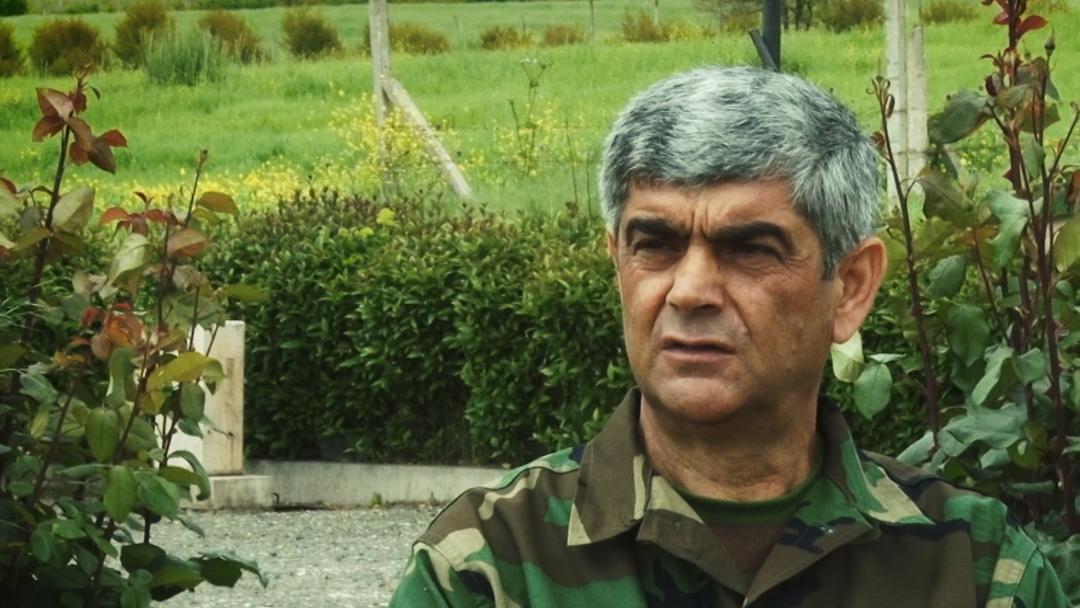
Balasanyan criticizes Pashinyan’s Nagorno-Karabakh Policy

On 15 October, Vitaly Balasanyan, the former secretary of the national security council for the so-called Nagorno-Karabakh Republic told reporters that Armenian Prime Minister Nikol Pashinyan is pursuing broad autonomy for Nagorno-Karabakh in Azerbaijan.
He said that Pashinyan spoke with Aliyev on the sidelines of the Commonwealth of Independent States (CIS) conference held on 11 October. Balasanyan said that he knew what Pashinyan and Aliyev talked about, but did not elaborate on the topic of discussion. “We have our sources. We know whom the prime minister met, we are aware of lift diplomacy. But we did not talk about all this for one simple reason. We waited for the prime minister to present what he spoke with Aliyev,” he said.
Balasanyan also added that Pashinyan has no particular vision for resolving the Karabakh conflict. ″There isn't any vision. The vision is Levon Ter-Petrosyan's program - aiming to give the Nagorno-Karabakh Republic a broad autonomy on the territory of Azerbaijan. That's the kind of policy Nikol Pashinyan pursues at the moment,” he stated. To recall, in 1997 the former Armenian President Levon Ter-Petrosyan fully approved of the OSCE “step-by- step” proposal to resolve the conflict. The proposal suggested the withdrawal of armed forces, creation of a buffer zone and deployment of peacekeepers. Refugee and IDPs were also to return home, after which the parties were supposed to discuss the status of Nagorno-Karabakh. The proposal was agreed by the Armenian and Azerbaijani authorities, but not from the de-facto Karabakh authorities.
Balasanyan also commented on the recent erasure of tensions on the contact line. “Some say that during Nikol Pashinyan the tension on the border has weakened which is the result of the well-known elevator diplomacy. It was beneficial for Azerbaijan to have zero tension on the border,” he said, adding that it must be seen what engineering works Azerbaijan has carried out during this period. “If you see you will understand that what Nikol Pashinyan called hot line is an anti-Armenian, dangerous arrangement threatening our security,” he said, adding that Pashinyan has involved Armenia into a war situation.
He also recalled Pashinyan’s statement made in Stepanakert that “Karabakh is Armenia” (Caucasus Watch reported). Balasanyan believed that Pashinyan wanted to use the statement to show that he was the general leader of the Karabakh Armenians. “Nikol Pashinyan is very wrong, it is not a norm in politics, it is very dangerous, he did it on purpose,” he said.
Political expert Angela Elibegova also commented on Pashinyan’s approach to the conflict. When talking about how the recent statements of Pashinayna and Aliyev (Caucasus Watch reported) shaped the direction of the negotiations, she highlighted that a third approach might exist. “A new concept is developing, which I am sure Azerbaijan will by all means present to the international community. The concern deals with [Karabakh Armenian’s] position– the way we are going to pursue our propaganda. In the current state of affairs, we have a predictable scenario from Azerbaijan, whereas we cannot say the same when it comes to Armenia's official position,” she stressed.
See Also


Mirzoyan Meets US Deputy Assistant Secretary Joshua Huck

Azerbaijani President Holds Talks with UAE and German Business Delegations on Economic Cooperation

Grigoryan Confirms Armenia’s Readiness to Dissolve OSCE Minsk Group Upon Peace Treaty Signing

Azerbaijani Official Warns of Ecological Risks to Caspian Sea, Similar to Lake Urmia and Aral Sea

